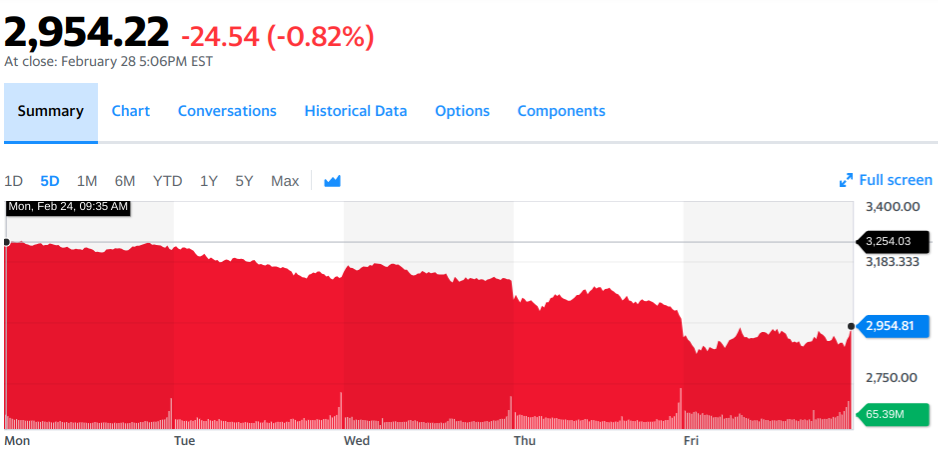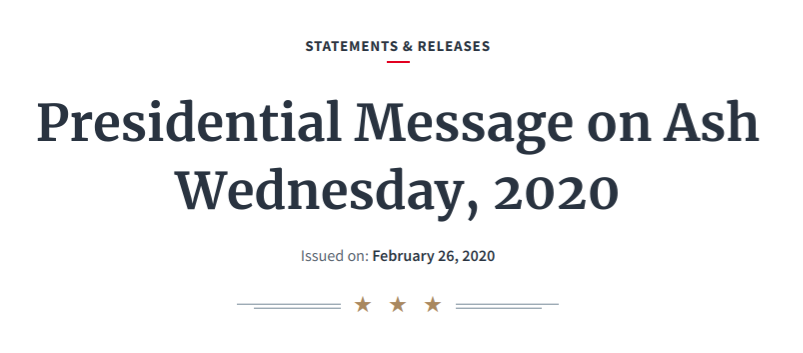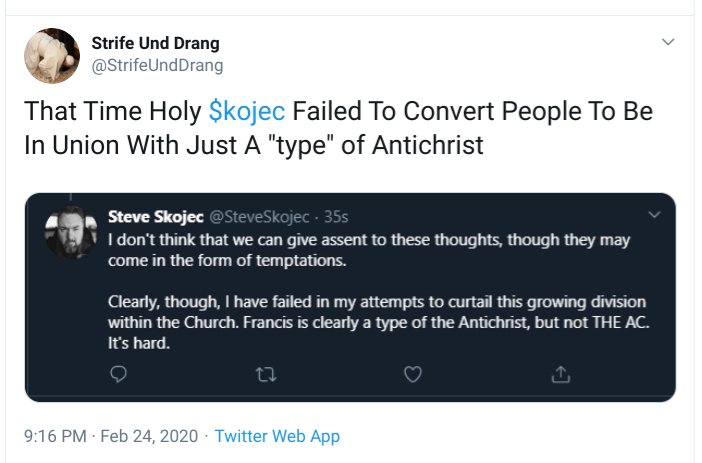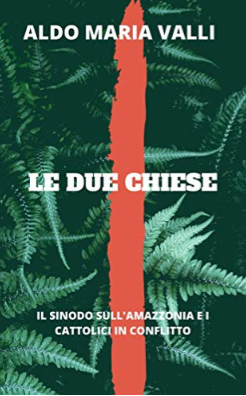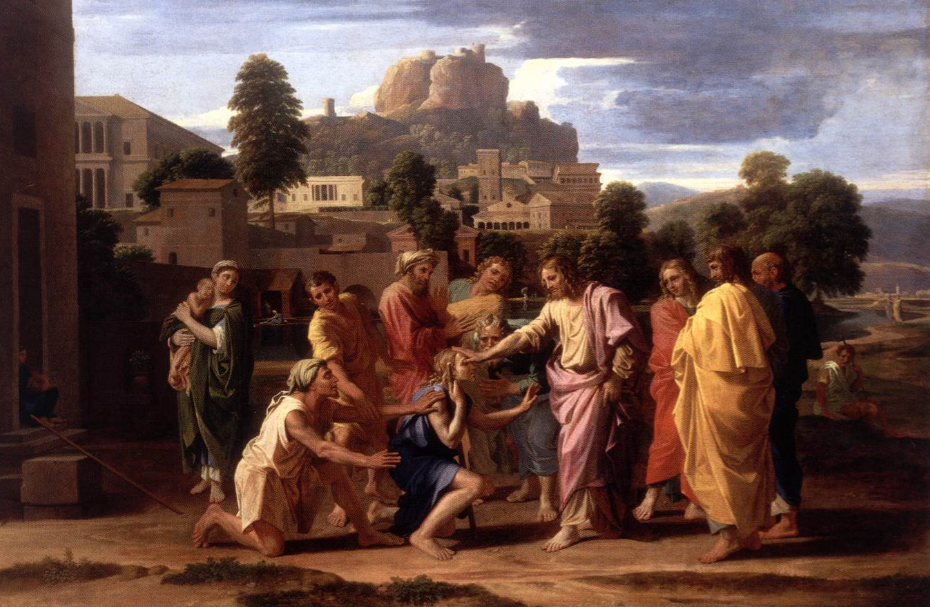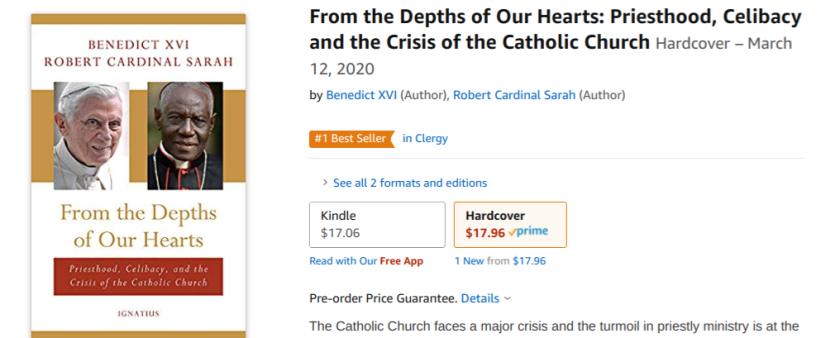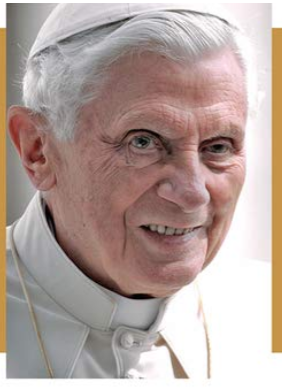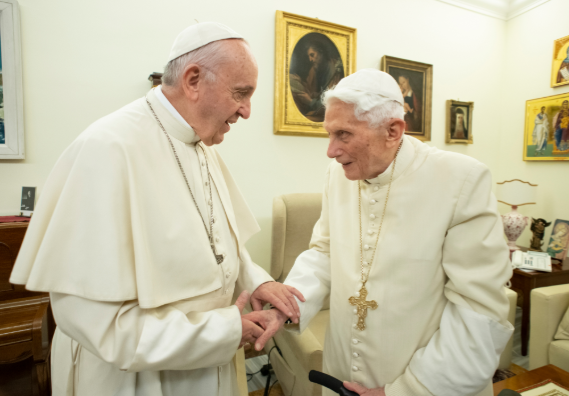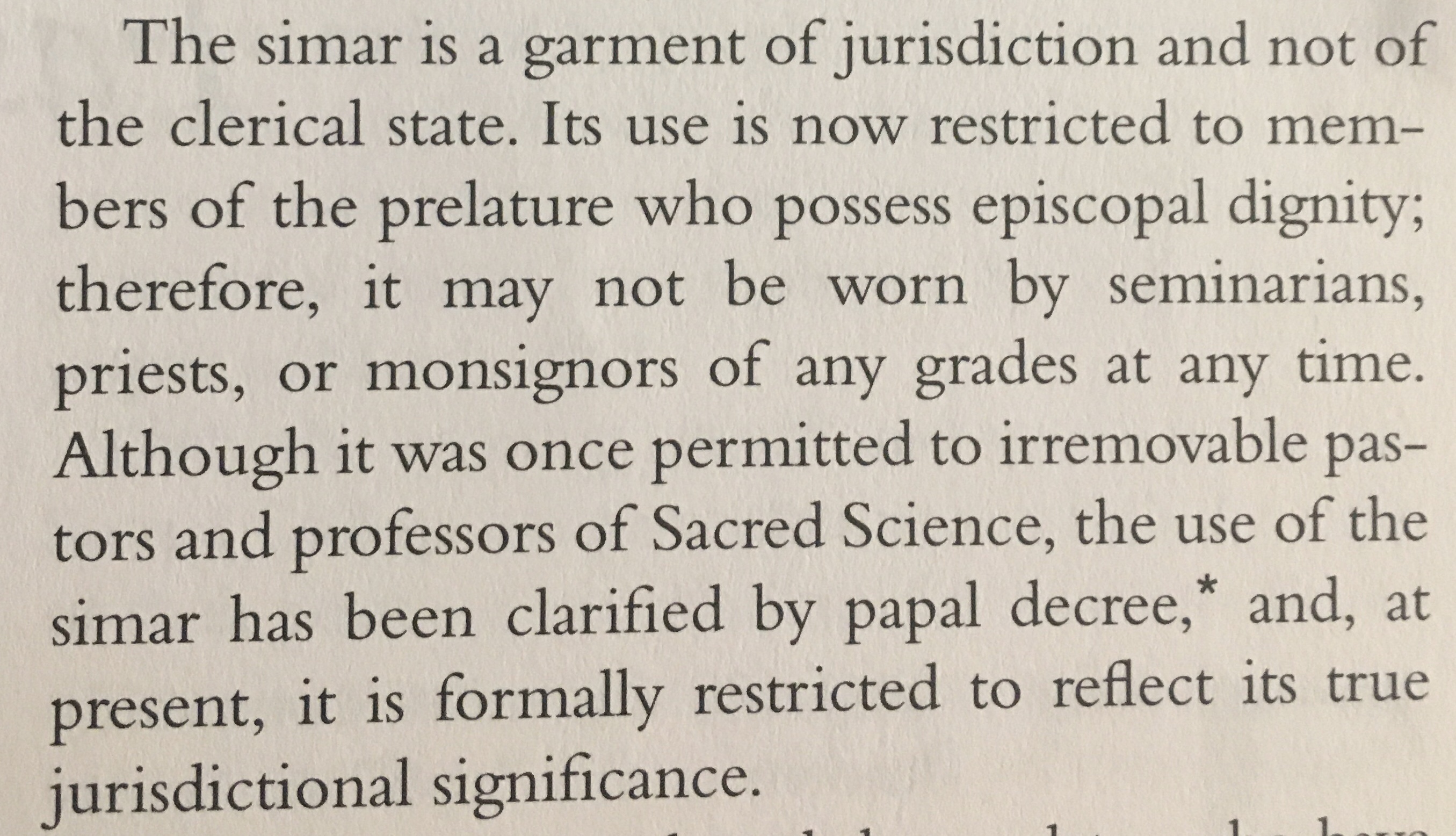Happy Saturday!
Edward Pentin has just blown the doors off the Benedict is Pope (BiP) story. He presents his essay at his personal blog, I’m assuming because his employer EWTN/National Catholic Register wouldn’t touch it. Too much at stake, you know. We can’t let the truth get in the way of the cash flow, see?
The essay is not an opinion piece, but rather a balanced presentation of viewpoints on the situation. So balanced, in fact, that it is frankly outrageous that they wouldn’t publish it. It took a lot of courage for Mr. Pentin to put this out there, because he has risked his livelihood in doing it. Please join me in offering prayers for him.
I am not going to block quote any of it; you need to go read the whole thing. https://edwardpentin.co.uk/debate-intensifies-over-benedict-xvis-resignation-and-role-as-pope-emeritus/
There is much more to be said, and much more evidence to be introduced, if Mr. Pentin chooses to do so. The doctoral dissertation from Archbishop J. Michael Miller is absolutely critical, as it is the ultimate repository of Twentieth Century Teutonic tinkering with the “demythologizing” of the papacy: Dissolving the divinely-instituted papal absolute monarchy with universal jurisdiction into a shared ministry where the various functions are performed by various (two or more) members.

The book version of +Miller’s work extends the documentation into the 1980s
Perhaps the best summary of the various positions held by the various confused German theologians of the 1950s, 60s, and 70s is summed up in this one sentence from a confused Cardinal Dulles in 1955:
Sound familiar? How about a situation where a reigning pope sets aside or delegates the governance aspect of the Petrine function to his “successor,” where the new “pope” assumes the active governance role, while the old pope retains the contemplative, supernatural aspect of the papacy, almost hoping to turn himself into some sort of “uber pope”… retreating or perhaps even imprisoning himself in the Vatican Gardens to concentrate on the heavy-lifting, as the suffering servant?
Well, none of that is possible, because the papacy was divinely instituted. No pope can alter the intrinsic ontological structure of the papacy. Even if it were possible, Benedict STILL would have retained the Office, per Canon 131.1, which states that delegation of governance does not confer an Office. But since it is entirely IMPOSSIBLE to change the structure of the papacy, per divine law, and since the concept of a papal diarchy clearly rises to the standard of Substantial Error as envisioned/anticipated in Canon 188, the ENTIRE abdication is thereby rendered invalid and null. Which means Benedict remains the pope, the whole pope, and no one else is pope. There was no conclave in March 2013, because the cardinals had no authority to convoke a conclave, per Canon 359. And then we have this elephant-sized breadcrumb: Benedict never bothered to resign the Office in the official act of renunciation, choosing to only renounce the active ministry, rendering the entire act invalid per Canon 332.2.
If you are new to this space, here are my recommendations. Study the canons. Study everything from Ann Barnhardt at barnhardt.biz since her declaration of 19 June 2016. My own declaration of moral certitude on this matter was published here on 3 July 2017, and hundreds of posts have followed. A really good jumping off point would be to get a pad of paper, a pencil, and watch this two-hour time-stamped video, which explains everything: (The link isn’t pasting correctly in this pane, but it works)
The balance in Mr. Pentin’s essay means it will have much more traction than if it were a one-sided opinion piece. Above all, the value of this first volley can be measured by this: The notion that the BiP theory is only followed by some insignificant handful of crazies is DOA, as of today.
DOA. Dead. Ed killed it. BiP has been MAINSTREAMED in Rome, and now everyone knows it.
Overton Window, as Hank Williams would say, Move It On Over.



